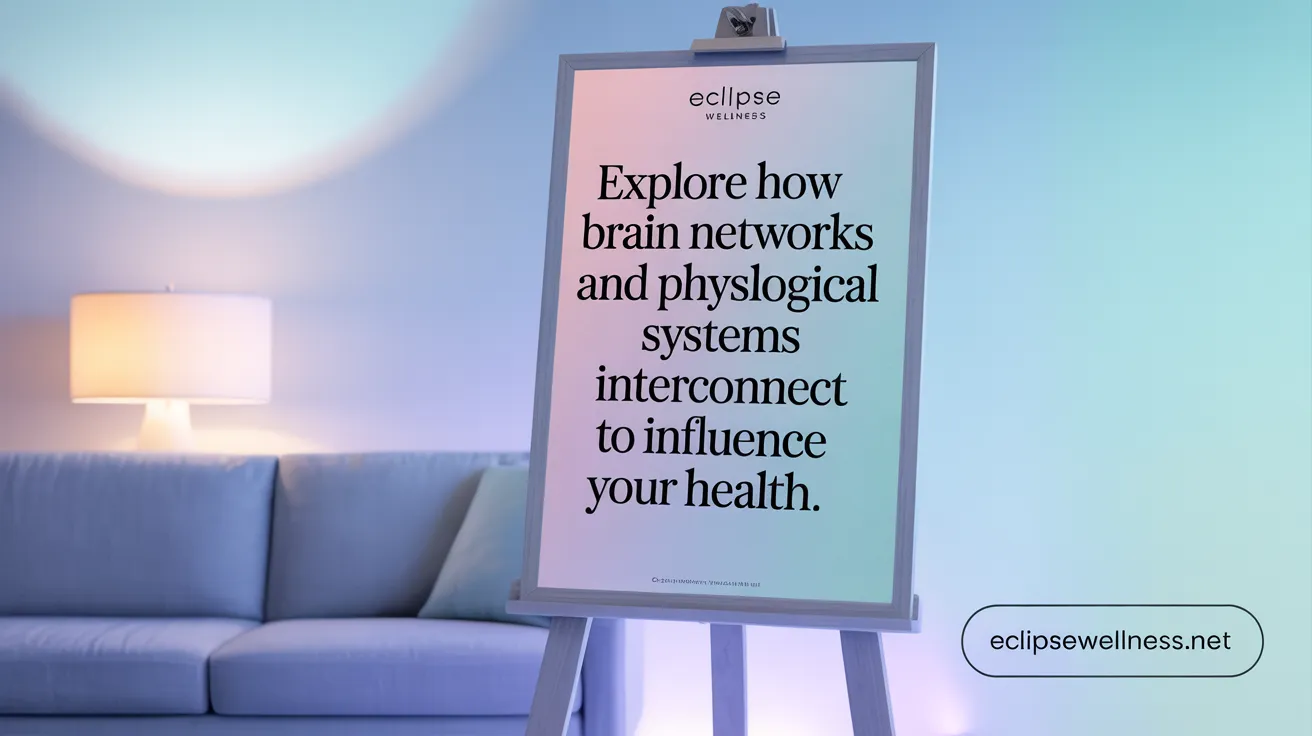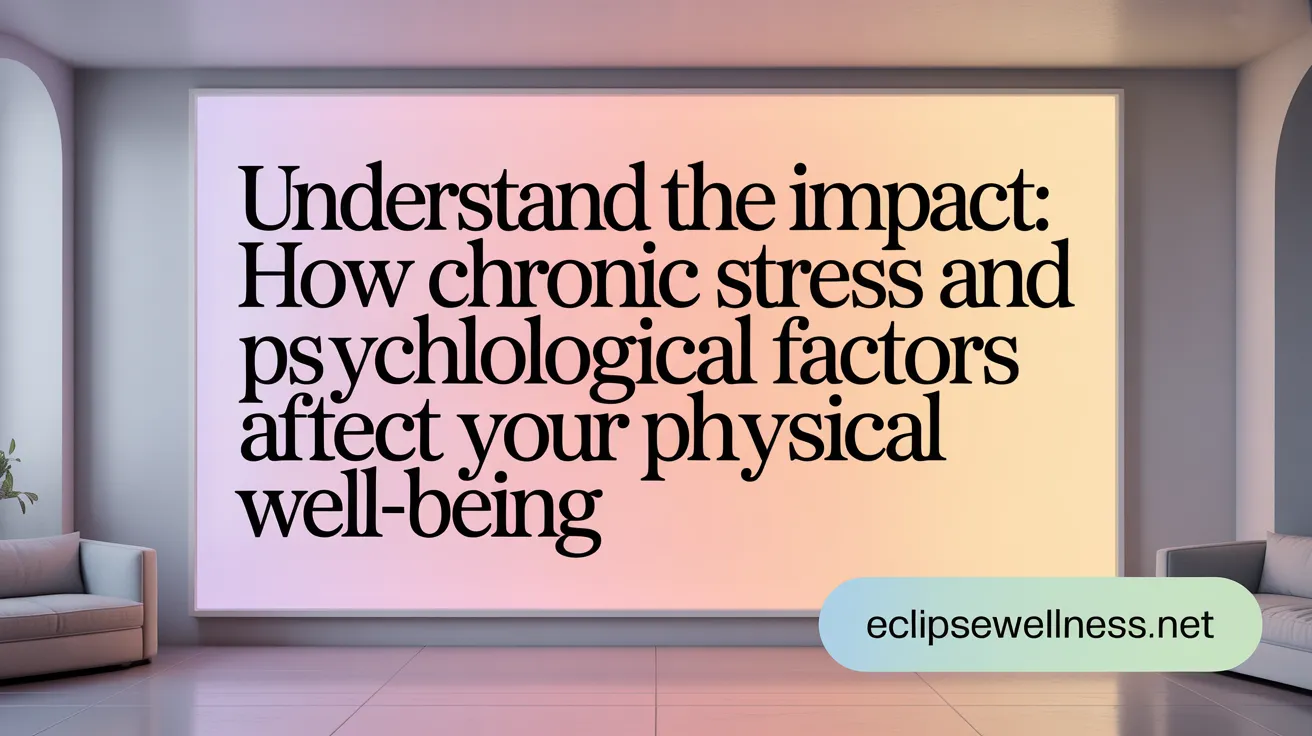Understanding the Foundation of Mind-Body Interactions
The profound interplay between mental states and physical health has long intrigued philosophers, scientists, and healthcare professionals alike. Today, modern research corroborates ancient wisdom, revealing how emotions, thoughts, and bodily functions are intricately connected. This article delves into the science and applications of the mind-body connection in healing, unveiling therapeutic strategies and emerging insights that empower holistic well-being.
The Science Behind the Mind-Body Connection

What is the historical and scientific basis for understanding the mind-body connection?
The concept of the mind-body connection dates back to ancient Greek philosophers like Plato and Aristotle, who contemplated the link between mental and physical health. Traditional Chinese Medicine also emphasized mind-body unity through the balance of Qi, or vital energy. In modern times, neuroscience and psychoneuroimmunology have scientifically confirmed this connection, showing how emotions and thoughts influence biological systems such as the immune response and hormone production.
Recent neuroimaging studies using functional MRI (fMRI) have identified a brain network called the Somato-Cognitive Action Network (SCAN). This network integrates regions responsible for movement, cognitive functions such as planning, and autonomic processes like heart rate and blood pressure regulation. This discovery offers clear physiological evidence of the mind-body integration embedded in our brain's structure.
How do physiological systems mediate the mind-body relationship?
When the mind perceives stress, it activates the fight-or-flight response, releasing hormones including cortisol and adrenaline. These hormones increase heart rate and blood pressure and modify immune system activity to respond to immediate threats. While beneficial short-term, chronic stress leads to persistent hormone release, which may suppress immune function, cause inflammation, and increase risk of diseases like heart disease.
Neurotransmitters such as serotonin play a crucial role in linking mental and physical health by regulating mood, digestion, and sleep. The gut-brain axis exemplifies this connection: the gastrointestinal system communicates directly with the central nervous system via the enteric nervous system and influences mental well-being. The gut microbiome produces neurotransmitters like serotonin and GABA, which affect emotions and cognitive function. Imbalances in gut bacteria have been linked to mental health issues including anxiety and depression, showing how physical and mental states interconnect.
These interconnected physiological mechanisms underscore that the mind and body function as a holistic system, influencing each other continuously to maintain health and respond to stressors.
Mind-Body Imbalance: Signs and Health Implications

What are common signs and health consequences of a disrupted mind-body connection?
A disrupted mind-body connection often presents with both physical and emotional symptoms. Common physical signs include headaches, muscle tension, gastrointestinal problems, and difficulties with sleep. These symptoms signal that the balance between mental states and physical health is out of sync (psychoneuroimmunology and health).
Emotionally, individuals may experience anxiety, depression, mood swings, and general emotional distress. These mental health disturbances not only cause discomfort but also contribute to further physical health issues (emotional factors affecting health).
Chronic stress plays a central role in this imbalance, triggering the release of cortisol and adrenaline. While these hormones can be helpful in short bursts, their persistent elevation suppresses the immune system, increases inflammation, and raises the risk for cardiovascular diseases and chronic pain conditions (effects of chronic stress on health.
There is a reciprocal relationship between chronic diseases and psychological stress. Conditions such as heart disease, diabetes, and chronic pain frequently coexist with anxiety and depression, highlighting the close link between mind and body health. Managing this interplay is crucial for improving overall well-being and preventing the progression of both mental and physical illnesses (mind-body therapies for cancer symptom management).
Therapeutic Approaches Promoting Mind-Body Healing

What mind-body therapies exist and how do they support healing?
Mind-body therapies encompass a wide range of practices including yoga, tai chi, meditation, mindfulness, guided imagery, biofeedback, acupuncture, hypnosis, and somatic therapies. These methods foster relaxation, emotional regulation, and physiological balance by aligning mental and physical processes. Scientific research supports their effectiveness in alleviating anxiety, depression, chronic pain, post-traumatic stress disorder (PTSD), and enhancing immune system function (mind-body connection research, psychoneuroimmunology (PNI).
How do yoga, meditation, biofeedback, and acupuncture benefit mind-body health?
Yoga and tai chi combine physical movement, breath control, and mental focus to enhance flexibility, emotional stability, and stress reduction (yoga and Tai Chi benefits. Meditation and mindfulness practices improve self-awareness and help regulate stress hormones, lowering risks associated with chronic stress (meditation and mindfulness benefits). Biofeedback uses sensors to monitor physiological responses, teaching individuals to control stress and pain effectively (biofeedback therapy. Acupuncture modulates neural activity in brain regions involved in emotional regulation, helping reduce anxiety and chronic pain symptoms (acupuncture for mind-body health).
What role do somatic therapies play in trauma recovery?
Somatic therapies emphasize reconnecting the mind and body through conscious movement, breathwork, and body awareness (somatic self care, somatic therapy and mind-body connection). These approaches help individuals release stored physical and emotional tension caused by trauma. Techniques such as body scanning, grounding exercises, and trauma-informed yoga support emotional regulation, reduce anxiety, and promote healing by restoring nervous system balance (mind-body integration).
Why integrate nutrition, physical activity, and mindfulness in mind-body healing?
A balanced diet rich in omega-3 fatty acids, antioxidants, and essential nutrients supports brain health and mood regulation (balanced diet for mental health. Regular physical activity releases endorphins, combats depression and anxiety, and improves sleep quality (physical exercise and mental health). Mindfulness practices reduce stress, enhance emotional resilience, and improve physiological markers like blood pressure and immune function (mindfulness and meditation benefits. Together, these components create a comprehensive strategy to strengthen the mind-body connection.
How important is professional guidance and certification in mind-body therapies?
Certain mind-body therapies, including hypnosis and biofeedback, require professional certification to ensure their safe and effective administration (certification for hypnosis and biofeedback. Trained practitioners can tailor interventions to individual needs, monitor progress, and prevent adverse effects. Access to reliable resources and education enhances patient motivation and maximizes therapeutic benefits while maintaining safety (professional resources for mind-body therapies.
Mechanisms of Mind-Body Practices: From Relaxation to Neuroplasticity
How do mind-body practices influence physiological and neural processes?
Mind-body practices primarily evoke a relaxation response, characterized by lowered oxygen consumption, reduced heart rate, and decreased blood pressure. This physiological state counters the body's stress response, which, when chronic, can contribute to health problems. Techniques such as deep breathing, meditation, and guided imagery induce this relaxation, helping to regulate the autonomic nervous system and mitigate the negative effects of stress.
Neuroscientific research using neuroimaging tools like fMRI has uncovered brain changes associated with these practices. Meditation and mindfulness enhance activity and structural connectivity in brain regions responsible for emotion regulation, attentional control, and self-awareness. These changes reflect neuroplasticity — the brain's ability to reorganize itself — which supports mental health and aids healing.
Furthermore, mindset and perception profoundly influence health outcomes. Positive expectations can lead to real physiological improvements, demonstrated by placebo effects where belief triggers symptom relief. Conversely, negative expectations, or nocebo effects, can worsen health. A striking example comes from studies linking individuals’ perception of time to faster healing of bruises, emphasizing psychological factors' power over physical recovery (Harvard study).
Together, these mechanisms reveal how mind-body practices not only alleviate stress but also actively shape brain function and overall health, highlighting the integral role of psychological factors affecting health in promoting healing and well-being.
Applications for Trauma Survivors and Chronic Illness Management
How do mind-body approaches aid healing in trauma survivors and chronic illness patients?
Mind-body medicine provides comprehensive support for trauma survivors by addressing both emotional stress and physical symptoms such as muscle tension and headaches. This approach helps reduce anxiety and depression through techniques like biofeedback, guided imagery, and somatic experiencing. These therapies promote nervous system regulation, facilitate the release of trapped traumatic energy, and enhance emotional resilience.
In managing chronic illnesses, mind-body practices are effective in mitigating stress, alleviating pain, and improving overall quality of life. By reducing stress hormone levels and promoting relaxation responses, patients may experience less pain and better mental well-being.
What techniques are used in trauma and chronic care?
- Biofeedback: Uses sensors to monitor and control physiological processes, helping patients manage stress and pain.
- Somatic Therapy: Focuses on body awareness and movement to release emotional tension and trauma stored physically.
- Mindfulness and Meditation: Encourage present-moment awareness, reduce stress, and enhance emotional regulation.
- Guided Imagery: Uses visualization to access calming mental states and support healing.
- Yoga and Tai Chi: Combine physical movement with breath control to foster relaxation and bodily integration.
How do mind-body strategies complement traditional treatment?
Mind-body approaches work alongside conventional medical treatments by supporting emotional and physical healing. They empower patients by increasing self-awareness and active participation in their recovery process. Importantly, these therapies enhance coping skills and resilience, facilitating better management of chronic health conditions and trauma symptoms.
In summary, integrative mind-body medicine offers a well-rounded, effective approach for trauma recovery and chronic illness management, focusing on healing the whole person physically, mentally, and emotionally.
Integrating Mind-Body Healing Into Everyday Life and Healthcare

How can individuals and healthcare systems incorporate mind-body connection principles for enhanced healing?
Strengthening the mind-body connection in daily life involves simple, accessible techniques that promote stress reduction and emotional stability. Practices such as mindfulness meditation benefits, deep breathing exercises, progressive muscle relaxation, yoga, and gentle physical activities like tai chi practice or walking help regulate the autonomic nervous system. These methods relieve tension, improve mood, and foster resilience against chronic stress.
Healthcare providers have a critical role in supporting these mind-body practices. They can educate patients about the benefits, recommend suitable therapies tailored to individual needs, and incorporate mind-body approaches alongside traditional medical care. This integrative strategy enhances treatment outcomes for various conditions, including anxiety, chronic pain, and cardiovascular risks.
Public and clinical adoption of mind-body therapies has grown significantly over recent years. Research confirms their safety and efficacy, encouraging broader acceptance. Mind-body techniques are increasingly included in patient care plans, mental health programs, and wellness education.
Looking ahead, personalized medicine and digital health innovations promise to transform mind-body interventions. Future developments will focus on customizing therapies based on genetic, psychological, and lifestyle factors while leveraging mobile apps and wearable devices to monitor and support daily practice. Transdisciplinary collaboration among healthcare professionals will further optimize integrative care.
Patient education and self-care remain foundational for effective mind-body integration. Empowering individuals through knowledge and resources fosters active participation in their health, leading to sustained well-being and improved quality of life.
Embracing the Mind-Body Connection for Holistic Healing
The synergy between mind and body forms a foundational pillar for health and healing, supported by both ancient traditions and cutting-edge science. Recognizing and nurturing this connection through validated therapies and daily practices empowers individuals to manage stress, enhance resilience, and improve quality of life. As research progresses and healthcare increasingly embraces integrative approaches, the promise of mind-body medicine shines brightly, offering a path toward holistic well-being that encompasses mental, emotional, and physical health.
